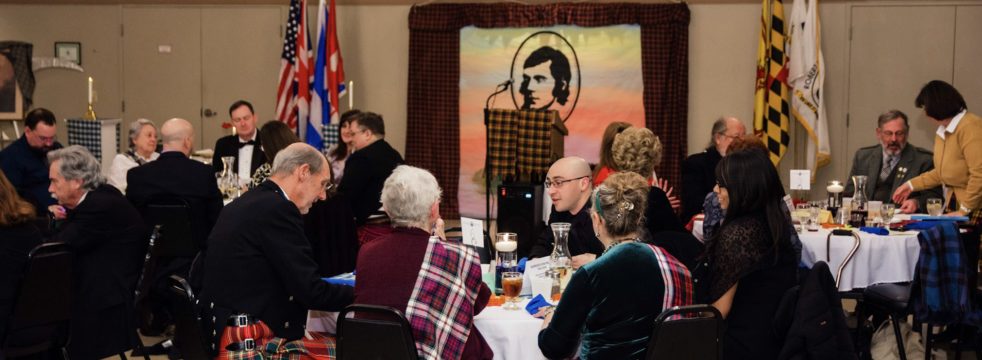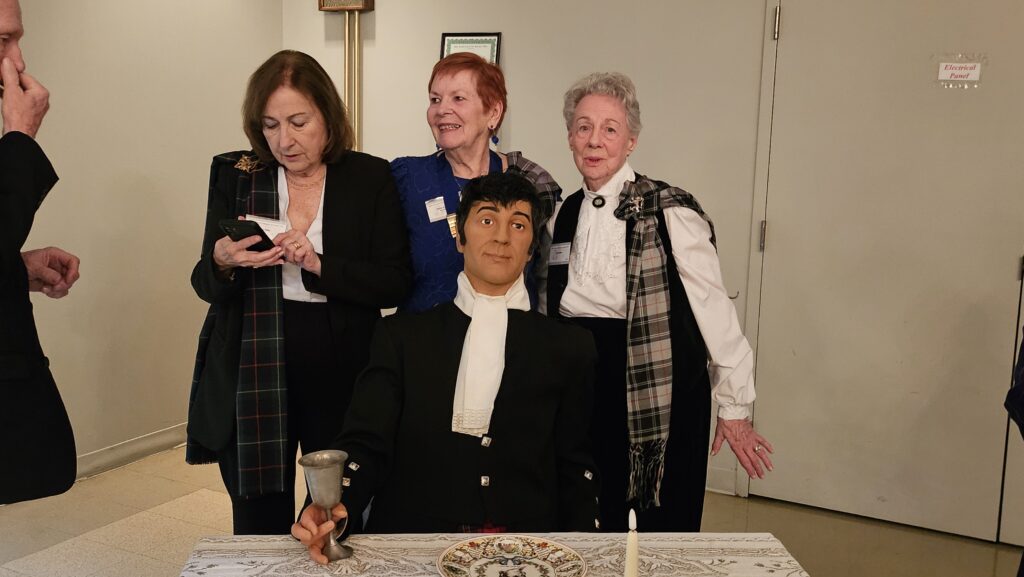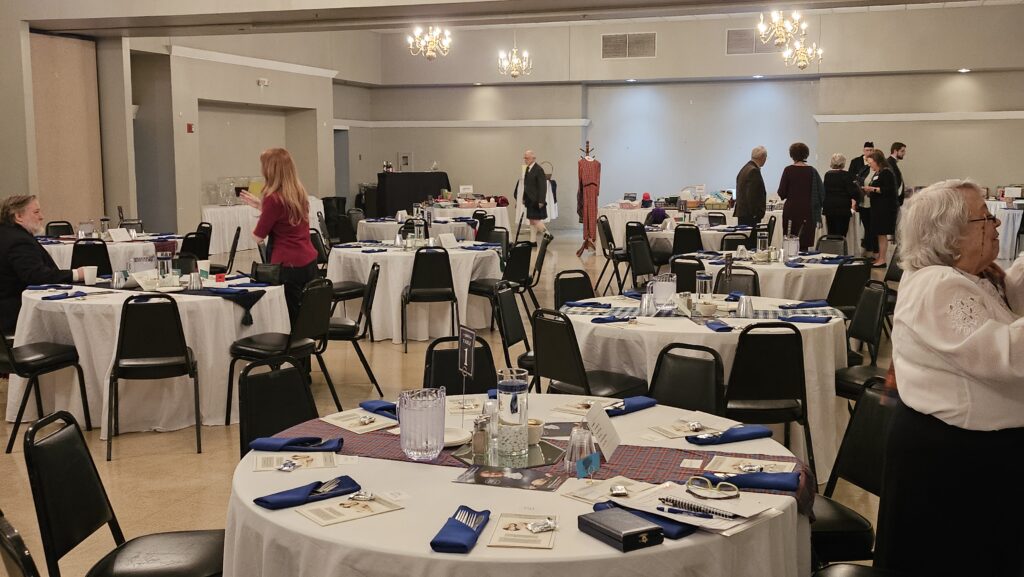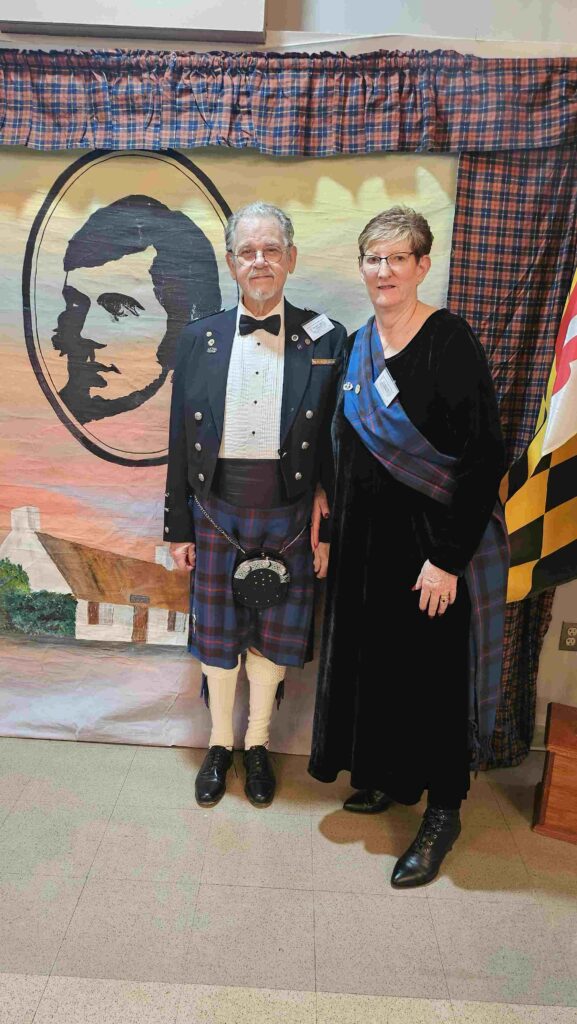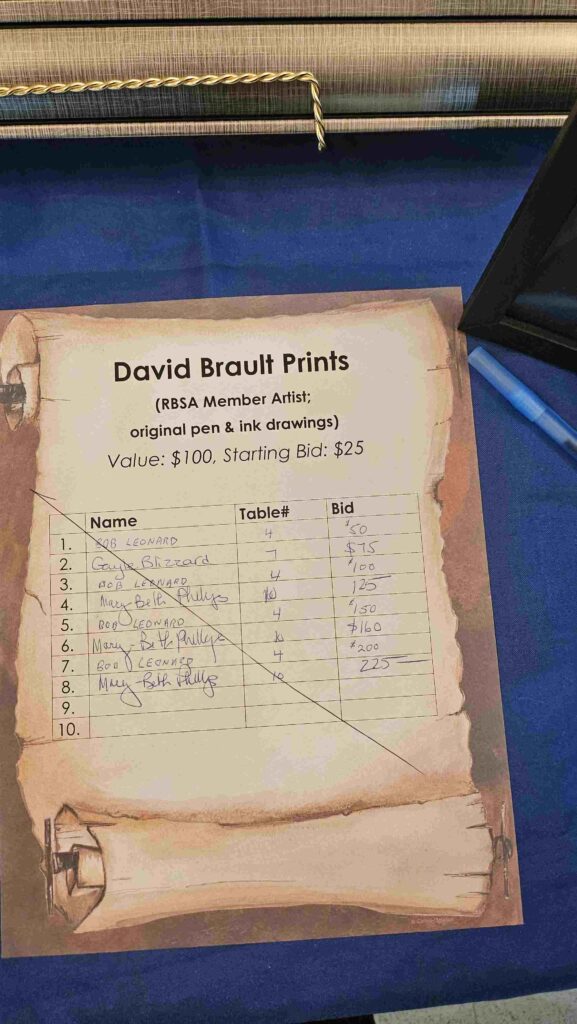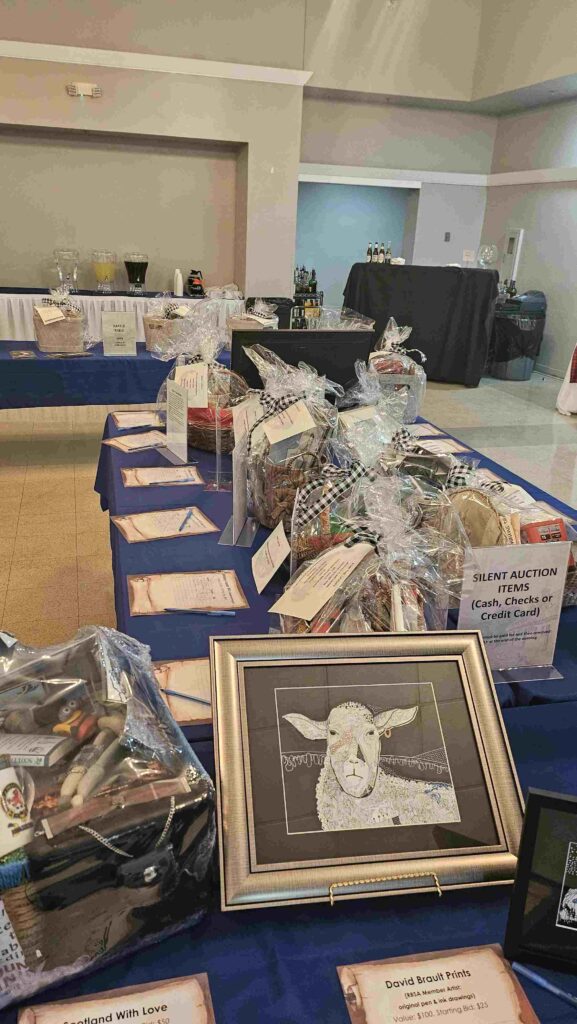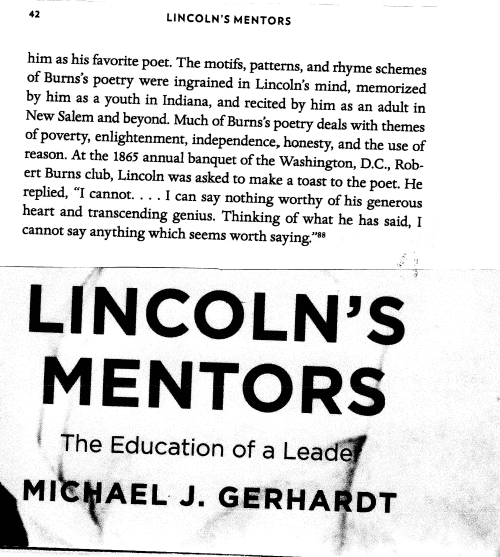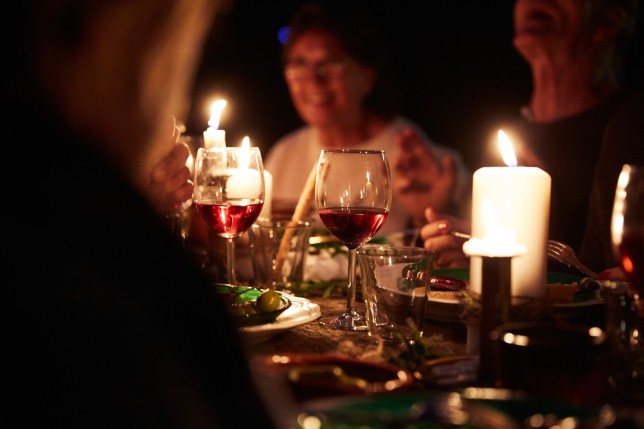Part 2: The Program
A Burns Night Program has a well-established format. And while there is some slight variation in the order of these elements of the fiesta, they generally will fall into this pattern The pattern of the program dates back to the earliest Burns Supper events.
The “running order” falls into this general pattern:
- Piping in guests
- Host’s welcoming speech
- “Selkirk Grace”
- Soup/Salad course
- Haggis
- Piping in the haggis
- “Address to a Haggis”
- Main course
- Other courses
- Toasts
- Immortal memory
- Address to the Lassies
- Reply to the Laddies
- Works by Burns
- Closing
- “Auld Lang Syne”
Piping in the Guests
Unless you play the bagpipes or have a good friend who plays them you’ll likely be playing a jaunty tune to welcome your guests in a suitably festive manner. Scotland the Brave, or Highland Laddie make great entry tunes.
Welcome and Grace
The welcome is a formal beginning to the festivities. It can be as simple as a greeting on behalf of the host to the guests. It can also be a less formal “Cheers” to the assemblage, but immediately after this comes “Grace”. At a Burns dinner it is traditional to use the Selkirk Grace.
Some hae meat and canna eat,
And some wad eat that want it,
But we hae meat and we can eat,
Sae let the Lord be Thankit!
Burns himself is said to have delivered this before the Earl of Selkirk at a private event.
The Courses
The meal is served in three courses. Obviously for your at-home a multi-course meal may not be practical, but there are a few traditional dishes that should be expected to be served:
- Tatties and Neeps (A mix of potatoes and turnips – usually mashed)
- Haggis (I’ll refer you to part 1 of this series for obtaining haggis in the US)
- Something to toast with (Scotch or wine, traditionally)
The haggis is treated as an honored guest at a Burns dinner. It is piped in. Someone declares the “Address to the Haggis” (and the more dramatics the better for the evening). And then it is served with great ceremony. Remember to pay the piper with a dram of scotch (or the cook, or whomever delivers your address – Scotch is a universal currency at a Burns Supper).
For dessert some fine scottish shortbread or warm gingerbread will hit the spot.
Toasts
Toasts are broken into three sets and are generally delivered by guests rather than the host (although the host is free to deliver them should they wish).
First, the Immortal Memory, is usually an essay extolling Burns and his work and may include samples of his works as well as historical information. Best make it quick (especially if everyone has had a big meal) or else your audience will fall asleep. I find 10 to 15 minutes is about the longest a crowd can stand. For a private gathering, perhaps some “Burns Trivia” if nobody feels up to a full essay.
The Immortal memory is always concluded with a toast to Robert Burns.
Second, the Toasts to the Lassies and the reply from the Lassies. These are usually humorous, and often in rhyme. This is usually followed by any additional toasts to friends who have passed over the year, toasts to the president, the queen, veterans, hosts, and anyone else of importance.
And lastly a reading of Burns Poetry. One of the RBSA board swears that “Tam o’Shanter” is too long for such an event (it takes roughly 10 minutes to read) but any Burns poem is appropriate and whomever is taking responsibility to do the recitation should pick something approp[riate and be practiced in its delivery (especially after toasting!).
Closing
Your closing should be a salute to the host and a profound thanks to the participants. Everyone who participated is to be thanks, toasted, and celebrated. And to wrap it all up a chorus of Auld Lang Syne to close the evening. Many dinners do this holding hands in a circle , which for an intimate private meal is very appropriate.
After the song clean up quickly and spend the last part of your evening in good cheer. And hope that a bigger public event is open next year (2023)
Resources
Sample Programs:
Pipe Music
Entertainments (2022)
Toasts to the Lassies and Reply to the Laddies
Related Articles

